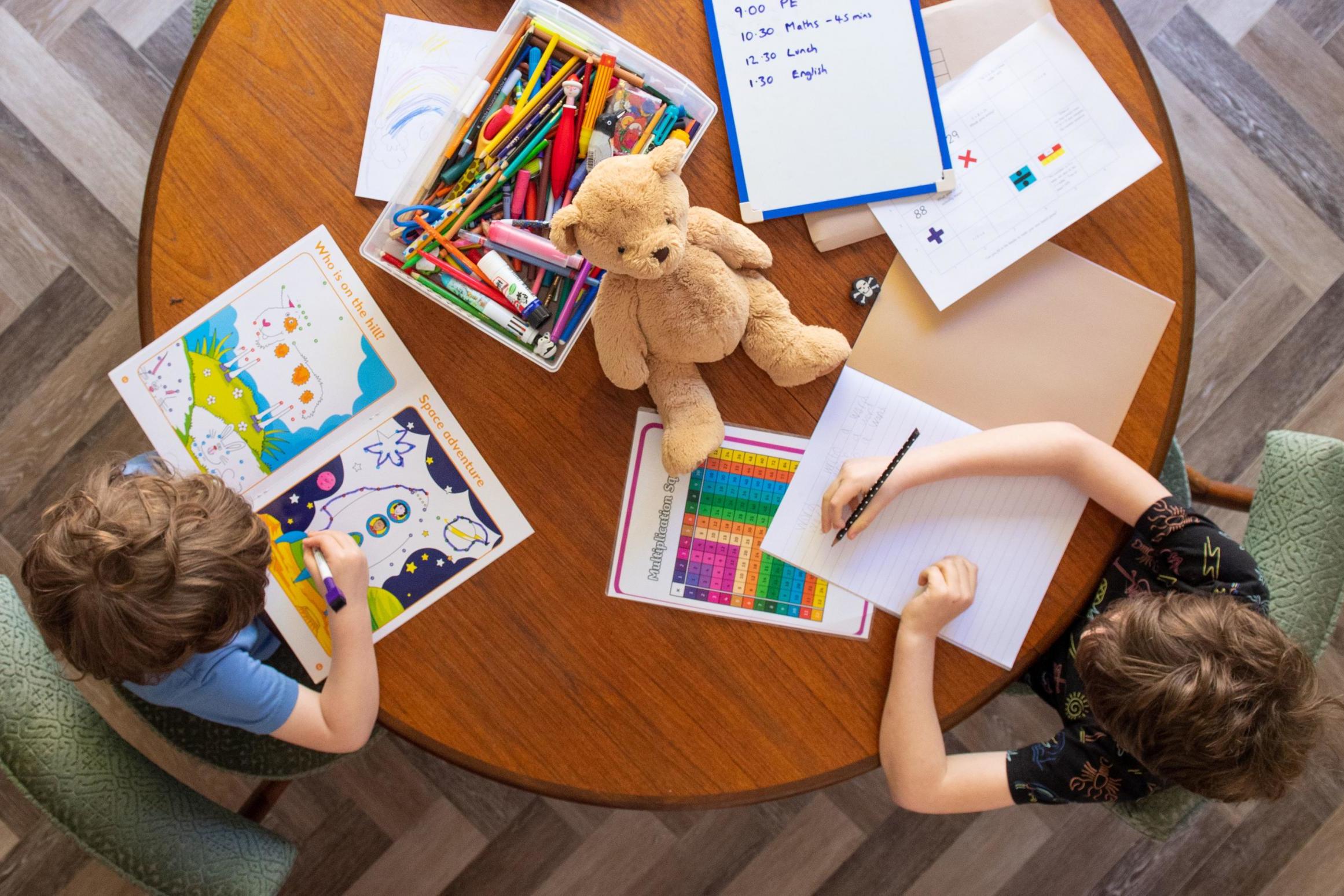‘I’m sure lockdown is worse for the children’: Have my parenting skills been exposed by coronavirus?
In the latest of his reflections about place and pathway, Will Gore recalls a trip to the woods that left him in a panic, questioning his skills as a parent


Anyone living with their children must surely have had occasion to question their parenting skills over the past two months. In the age before coronavirus, most people with kids seemed to spend their time wishing they could see more of their offspring; now it’s a reality, I suspect many mothers and fathers are desperate for some familial distancing.
I have certainly found out some bitter truths about the dad part of myself. For one thing, I am less patient than I had liked to imagine; for another, I’m depressingly less imaginative than I’d thought. I read or hear stories in the news about men who have built Anglo-Saxon roundhouses with their kids as part of home-school history lessons. And yet there am I, struggling to persuade my five-year-old to draw the most cursory picture of a triceratops. If it’s not good for my state of mind, I’m sure lockdown is worse for the children.
Yet I wonder too if it was ever thus when it comes to being a parent; the present crisis has simply brought every inadequacy into sharper relief.
Our daughter was an exhausting baby, more or less from the word go. At the age of six weeks we had a scare when she developed bronchiolitis and spent a week in hospital. A month or two later she became very colicky. She fed badly and slept badly. We loved her insanely, but by God we were tired. My wife, caring for her day in, day out, bore the brunt. Looking back, there were many things I wish I’d done better, or done more.
Parenting invariably involves making a very long series of mistakes. Decent parenting involves trying your hardest to repeat as few of those mistakes as possible
At weekends, I would take Beatrix out, often just pushing her in her pram around the town: she only seemed to sleep in the day if she was on the move. On Sundays I often took her to church, where she would gaze in surprising silence at the ceiling and the stained-glass windows.
One wintry day, late in the afternoon, I decided to take her to the woods. There was plenty of time before the light faded, I assured my wife, and it would be good for both of us to get a breath of fresh air.
We drove up to the Bridgewater Monument at the heart of the Ashridge Estate, close to the line of the Ridgeway National Trail. I put Beatrix in a carrier, strapped to my chest. She loved to face outwards, taking in her surroundings and occasionally babbling as we went, and we set off down a winding path between bare trees.
There was hardly anyone else about and, while I couldn’t see her face, Beatrix seemed to be peering around happily. It was cold, and I realised after a while that I should have put her in a thicker outfit. Still, she was being carried so close to me, I figured she must be benefiting from my body heat. Maybe? I turned back, feeling suddenly anxious and wishing we’d not walked so far. I kept my arms firmly wrapped around my child.
When we got back to the car I undid the carrier and put Beatrix into her seat. Her little face, smiling up at me, was appallingly pale and there was a touch of blue around her lips. I put my coat over her and turned the car’s heating up to the max. We were only ten minutes from home, and I spent most of them looking in the rear-view mirror to see whether my daughter’s face was gaining any colour.
Outside our house I jumped out of the car and opened the rear door. I may never have breathed such a thankful sigh of relief when I saw Beatrix’s cheeks looking pink and her lips back to normal. I suggested we not mention the earlier hint of hypothermia; she cooed, which I took as assent.
Parenting invariably involves making a very long series of mistakes. Decent parenting involves trying your hardest to repeat as few of those mistakes as possible – even when circumstances are at their most challenging. And even if it means accepting that some triceratops only had two horns.
Join our commenting forum
Join thought-provoking conversations, follow other Independent readers and see their replies
Comments